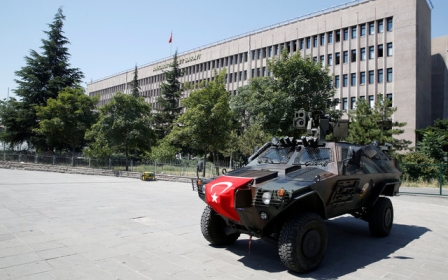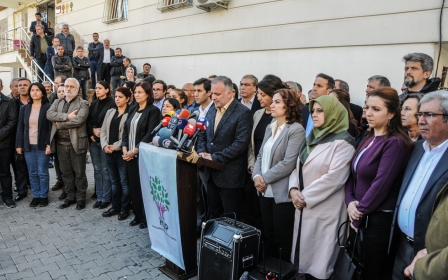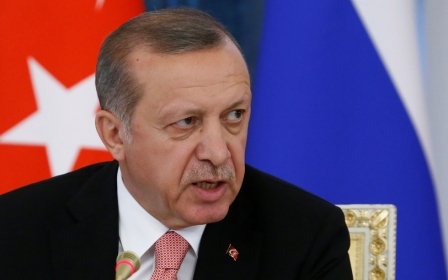Turkey warns US against demographic change in Syria's Raqqa

Turkey on Monday warned the United States not to allow demographic changes in the Syrian city of Raqqa after Kurdish-Arab forces launched a US-backed operation to capture the Islamic State (IS) bastion.
Turkish forces are conspicuously absent from the operation, even though they are present in northern Syria in their own operation in support of Syrian rebels against IS militants.
Deputy Prime Minister Numan Kurtulmus said Raqqa - like Aleppo, the divided main city of northern Syria, and Mosul in Iraq - "belonged to the people" who lived there before the conflict erupted.
"Changing the demographic structure will in no way make any contribution to making peace," he told reporters in televised comments.
Ankara had previously expressed alarm that the Kurdish-Arab Syrian Democratic Forces (SDF) leading the offensive were dominated by the Kurdish Peoples' Protection Units (YPG) militia.
It considers the YPG to be an offshoot of the Kurdistan Workers' Party (PKK) which has waged an insurgency against Ankara for more than three decades. Turkey has said it would stay out of any operation involving the YPG.
Turkey fears an influx of Kurds to Raqqa will change the ethnic composition of the Arab-majority area close to its border.
Ankara is also largely looking on from the sidelines at the US-backed Iraqi operation to retake Mosul from the militants, expressing alarm over the potential roles of anti-Ankara Kurdish fighters and Shia militia.
As the Raqqa offensive started on Sunday, chairman of the US Joint Chiefs of Staff General Joseph Dunford visited Ankara for previously unannounced talks with his Turkish counterpart.
Brett McGurk, the US envoy for the coalition battling the militants, said the visit was to keep "close contact with our Turkish allies" over the offensive.
Kurtulmus said "legitimacy" after the eventual ousting of IS was a key issue for the United States in Mosul and Raqqa.
"Legitimacy is not provided by armed terrorist groups. I think in the end the United States will have to understand this.
"Every step taken by non-Arab elements is not in the interests of the United States."
New MEE newsletter: Jerusalem Dispatch
Sign up to get the latest insights and analysis on Israel-Palestine, alongside Turkey Unpacked and other MEE newsletters
Middle East Eye delivers independent and unrivalled coverage and analysis of the Middle East, North Africa and beyond. To learn more about republishing this content and the associated fees, please fill out this form. More about MEE can be found here.




